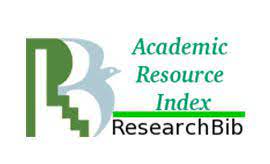RELATIONSHIP OF VALUE MEANINGFUL AND INDIVIDUALLY PSYCHOLOGICAL COMPONENTS IN THE PROCESS OF FORMATION OF THE PROFESSIONAL ORIENTATION OF FUTURE PSYCHOLOGISTS
DOI:
https://doi.org/10.51707/2618-0529-2024-29-05Keywords:
relationship, individually psychological components, future psychologists, professional orientation, value meaningful components.Abstract
The article examines the interrelationship of value meaningful and individually psychological components in the process of formation of the professional orientation of future psychologists. Based on the analysis of scientific literature, the theoretical foundations of the problem of the professional orientation of future psychologists are summarized. An empirical study of the relationship between value meaningful and individually psychological components in the process of formation of the professional orientation of future psychologists was conducted. It was found that almost half of the students have an orientation on interaction in professional activities. The predominance of such values as health (physical and mental), love (spiritual and physical), interesting work and the presence of good and faithful friends was highlighted. The lack of internal conflict between the desired and the available was investigated. It was determined that the vast majority of future psychologists have an average level of self-confidence; have no problems adapting to the social environment in which they are; open to interaction with others, accept themselves and their personal characteristics, understand them. The article emphasizes that more than half of the students are confident in their emotional attitude to the environment and understand their emotions, the majority of the studied have an internal locus of control, a tendency to dominance and leadership and a low level of escapism. As a result of the conducted correlation analysis, it was determined the presence of a negative moderate relationship between the degree of expression of the internal conflict between the desired and available and the level of expression of the following characteristics: adaptability, self-acceptance, acceptance of others, self-confidence. The presence of a weak negative relationship between the degree of expression of the internal conflict between the desired and available and the level of expression of such characteristics as: emotional comfort and internality was revealed. The presence of a positive moderate relationship between the degree of expression of the internal conflict between the desired and available and the level of escapism among students was established.
References
Tykholaz, S. I. (2007). Profesiina spriamovanist yak psykholoho-pedahohichne poniattia [Professional focus as a psychological and pedagogical concept]. Naukovi zapysky Vinnytskoho derzhavnoho pedahohichnoho universytetu imeni M. Kotsiubynskoho. Seriia “Pedahohika i psykholohiia”— Scientific notes of the Vinnytsia State Pedagogical University named after M. Kotsyubynskyi. Series “Pedagogy and Psychology”, 21, 265–269 [in Ukrainian].
Kokun, O. M. (2009). Osoblyvosti profesiinoi spriamovanosti, kompetentnosti ta profesiino vazhlyvykh yakostei fakhivtsiv profesii typu “liudyna — liudyna” u porivnianni z fakhivtsiamy profesii inshykh typiv [Peculiarities of professional focus, competence, and professionally important qualities of specialists in “human — human” professions compared to specialists in other types of professions]. Aktualni problemy psykholohii — Actual problems of psychology, 5, 12, 90–97 [in Ukrainian].
Titova, T. (2019). Osoblyvosti profesiinoi spriamovanosti studentiv-psykholohiv z riznym rivnem samorehuliatsii [Peculiarities of the professional orientation of psychology students with different levels of self-regulation]. Psykholohiia i osobystist — Psychology and specialness, 1 (15), 146–157. DOI: https://doi.org/10.33989/2226-4078.2019.1.163997 [in Ukrainian].
Shevchenko, N. F. (2013). Doslidzhennia profesiinoi spriamovanosti maibutnikh psykholohiv [Study of the professional orientation of future psychologists]. Visnyk Dnipropetrovskoho universytetu imeni Alfreda Nobelia. Seriia: Pedahohika i psykholohiia — Bulletin of the Dnipropetrovsk University named after Alfred Nobel. Series: Pedagogy and psychology, 1, 95–101. DOI: http://nbuv.gov.ua/UJRN/vduep_2013_1_17 [in Ukrainian].
Didukh, M. M. (2020). Profesiina spriamovanist yak dynamichna yakist osobystosti [Professional orientation as a dynamic personality quality]. Yurydychna psykholohiia — Legal psychology, 1 (28), 56–64 [in Ukrainian].
Machushnyk, O. L. (2014). Interes do profesii yak chynnyk piznavalnoi aktyvnosti maibutnikh psykholohiv [Interest in the profession as a factor in the cognitive activity of future psychologists]. Nauka i osvita — Science and education, 5, 248–254 [in Ukrainian].
Fedoryshyn, B. O. (1996). Psykholoho-pedahohichni osnovy profesiinoi oriientatsii [Psychological and pedagogical foundations of professional orientation]. Doctor’s thesis. Kyiv [in Ukrainian].
Priadun, V. O. (2016). Poniattia profesiinoi spriamovanosti maibutnoho vchytelia matematyky [The concept of professional orientation of the future teacher of mathematics]. Naukovi zapysky. Seriia: Problemy metodyky fizyko-matematychnoi i tekhnolohichnoi osvity — Proceedings. Series: Problems of the methodology of physical, mathematical and technological education, 9 (1), 28–34 [in Ukrainian].
Shevchenko, L. M. (2005). Profesiina spriamovanist: metodolohichnyi aspekt [Professional orientation: methodological aspect]. Naukovyi visnyk — Scientific Bulletin, 88, 204–215 [in Ukrainian].
Tolkov, O. S. (2014). Psykholohichni osoblyvosti spriamovanosti osobystosti studentiv [Psychological features of students’ personality orientation]. Problemy suchasnoi psykholohii — Problems of modern psychology, 23, 630–639 [in Ukrainian].
Potorii, Ya. I. (2002). Osoblyvosti tsinnisnomotyvatsiinoi sfery studentiv [Peculiarities of the value-motivational sphere of students]. Praktychna psykholohiia ta sotsialna robota — Practical Psychology and Social Work, 2, 36–39 [in Ukrainian].
Sevostianov, P. O. (2017). Vzaiemozviazok vidkrytosti dosvidu ta smyslozhyttievykh oriientatsii u studentiv [The connection between openness to experience and meaningful life orientations for students]. Visnyk Kharkivskoho natsionalnoho universytetu imeni V. N. Karazina. Seriia: Psykholohiia — Bulletin of Kharkiv National University named after V. N. Karazin. Series: Psychology, 63, 12–16 [in Ukrainian].
Downloads
Published
How to Cite
Issue
Section
License
Copyright (c) 2024 Scientific notes of Junior Academy of Sciences of Ukraine

This work is licensed under a Creative Commons Attribution 4.0 International License.













